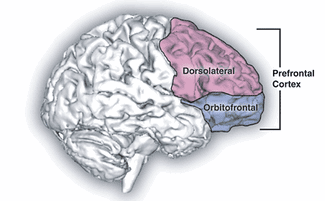Feeling feckless after another bad choice, you scold yourself: “Why do you always screw things up?” Go easy, it’s common in our neck of the woods. Take a few minutes and consider these 10 ways to manage poor judgement and decision-making.
For a time, run our potential judgments and decisions by someone we trust. Even discuss them after we’ve made the call. Take the feedback to heart.
A couple of years ago, I posted “Someday I’ll look back at this and laugh.” Seriously?
I shared that I quit using the statement because I realized it was a cover for some emotional and mental illness realities I didn’t want to face – much less accept.
Number one on my reality list was a history of poor judgment and decision-making.
I hated it.
Since it’s a common challenge for anyone dealing with an emotional or mental illness, I committed to sharing some interventions in “part two.”
And here’s an updated version. Let’s get busy…
Poor judgment and decision-making
Yep, those of us enduring emotional or mental illnesses may experience troubles with poor judgment and decision-making.
Again, it’s common in our neck of the woods.
Executive functions
As I said in “part one,” judgment and decision-making are executive functions. And the action takes place in the brain’s prefrontal cortex (PFC).
By the way, the cerebral cortex is the two to four millimeter thick outer covering of the brain. The PFC comprises one-third of it.

Prefrontal cortex
As long as we’re doing details, the PFC is the portion of the brain that develops last – in late adolescence. That explains a lot, right?
When it comes to the emotional and mental illnesses, the PFC is a busy place. So there’s bound to be the occasional traffic jam.
When one occurs, dicey judgment and decision-making often arrive on the scene.
Inattention and impulsivity
There are two other executive functions that need to be mentioned – inattention and impulsivity. Here’s just one of the reasons why…
If we’re, say, depressed, we’re much more likely not to care enough to make quality decisions. If we’re anxious, hypomanic, or manic, our elevated mental state may show the door to any ability to make good judgment calls.
Can you connect with either?
10 ways to manage poor judgment and decision-making
Okay, poor judgment and decision-making may be pathological and long-standing, but there’s plenty we can do about them.
Take a look at 10 ways to manage…
- Understand they’re most often part of our emotional and mental illness package. Become comfortable with why.
- Accept our propensity to do both. While we’re at it, accept the realities of our illness.
- For a time, run our potential judgments and decisions by someone we trust. Even discuss them after we’ve made the call. Take the feedback to heart.
- Make a list of the poor judgments and decisions we’ve made over the past 30 days. Take into account the input of that someone we trust.
- Next to each of #4, record how our emotional or mental illness circumstances contributed, and what we can do to keep them from happening again.
- Avoid snap judgments and decisions. Take the time to consider our options before making the call.
- Reward ourselves after making a nice judgment call or decision. Take note of how we did it, as well as how good it made us feel.
- Assess where we are with inattention and impulsivity (reference #6). If they’re potential troublemakers, work on them and keep them monitored.
- Minimize stress by practicing healthy lifestyle habits – exercise, relaxation, nutrition, quality sleep, and more.
- Believe we have the authority and power to turn our judgment and decision-making history around – because we do.
What do you think? Surely you can come up with more.
Seriously?
Are you tired of scolding yourself with “Why do you always screw things up?” after yet another bad choice?
Then knock it off.
First, come to accept your “eccentric” executive functions. And whether it’s with the 10 pointers I shared or something else, begin the process of change.
Just think, it all started with “Someday I’ll look back at this and laugh.”
Seriously?
Ya’ gotta’ read part one to get the full scoop: “Someday I’ll look back at this and laugh.” Seriously?
And those Chipur emotional and mental illness info and inspiration titles are waiting for you.
prefrontal cortex image: public domain. authors: Natalie M. Zahr, PhD and Edith V. Sullivan, PhD.

After a decades-long battle with panic, generalized anxiety, fluctuating moods, and alcohol dependence; Bill finally found his life’s passion and work – lending a hand to those in the same boat. At age 49 he hit grad school and earned his counseling credentials. And he continues his service through Chipur and other projects.












